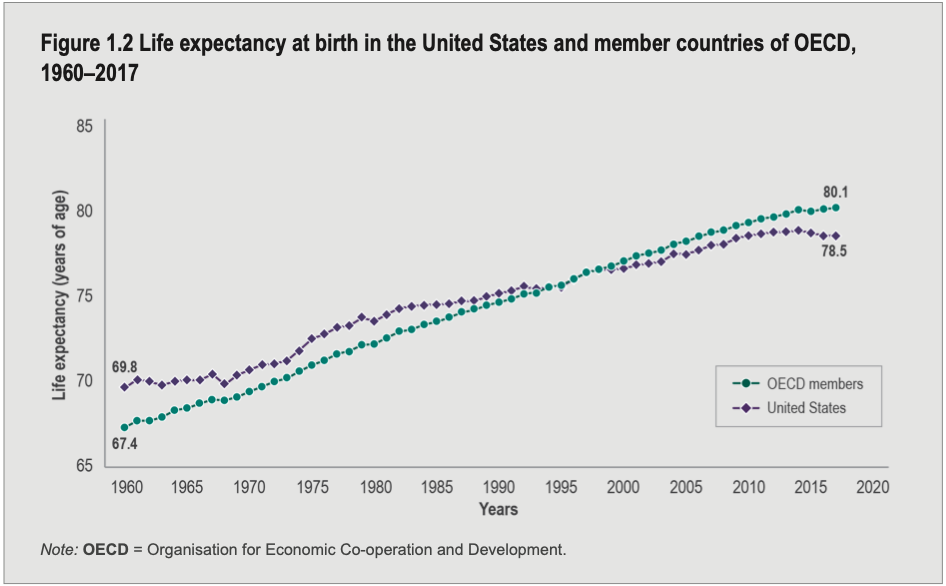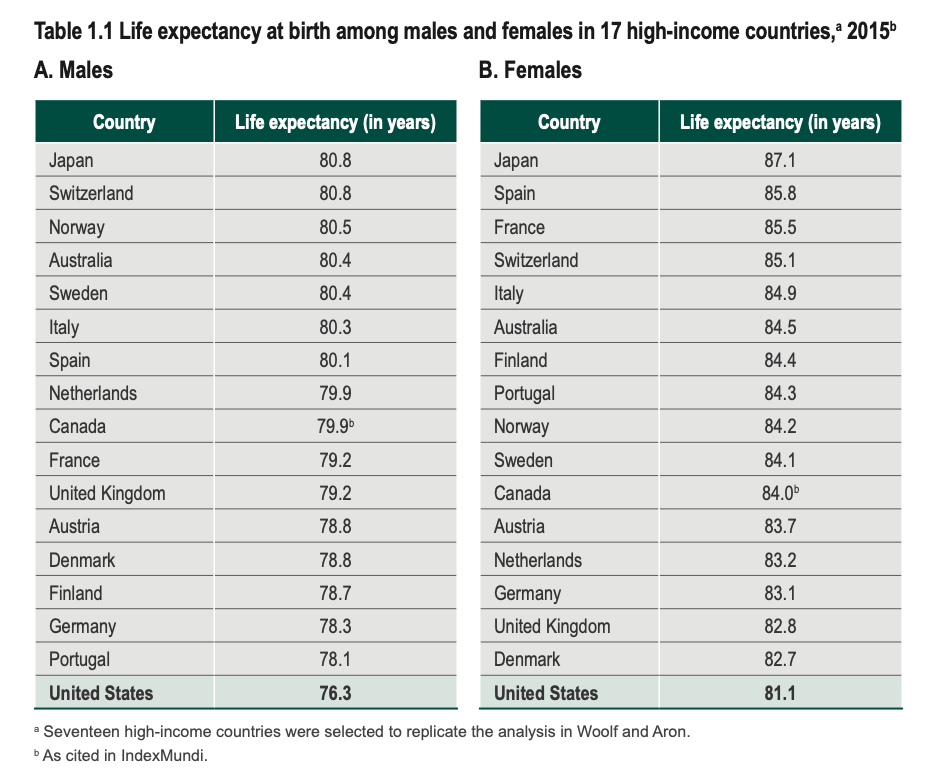
Community Health and Economic Prosperity: Engaging Businesses as Stewards and Stakeholders
-
Focus Areas
Healthy Communities -
Issues
Community Development -
Programs
Build Healthy Places Network

Compared to other wealthy nations, Americans have a lower health status, referred to as the U.S. health disadvantage—inflicting costs on individuals, families, businesses, and society. This report strives to convince business leaders of the importance of community health, by highlighting the importance of improving the health of residents and offering recommendations for how businesses can address the U.S. health disadvantage.
PHI’s Doug Jutte, MD, MPH, Executive Director of PHI’s Build Healthy Places Network (BHPN), served as one of three senior scientifc editors of this report, which was prepared by the U.S. Department of Health and Human Services under the general direction of the Centers for Disease Control and Prevention, Office of the Director, Office of the Associate Director for Policy and Strategy
Two years in the making, and the first report of its kind, the Surgeon General’s report offers business and community development leaders a path to invest in community health and support greater equity in communities. while still building a strong business and healthier economy.
“As a physician, I understand that health happens in communities. The fact is, our environment shapes the opportunities we have, and a lack of opportunity can mean poor health, education, family and career outcomes” stated former Surgeon General Vice Adm. Jerome M. Adams. “When Americans lack the opportunity to reach their full health and economic potential, we ALL pay a price.”
U.S. Health Disadvantage
The health of Americans is not as good as it could be and is worse than the health of populations of other wealthy nations. America’s lower health status, referred to as the U.S. health disadvantage, inflicts costs on individuals, families, businesses, and society.
The coronavirus pandemic of 2020 exposed additional costs as the virus claimed more lives among those with certain underlying conditions—such as obesity and diabetes that are found in greater proportion among Americans than among residents of many other wealthy countries—and disrupted the economy to such a grave extent that access to healthcare coverage was diminished, as millions of individuals lost employer-sponsored health insurance, and preventive services were interrupted.


For businesses, the U.S. health disadvantage increases healthcare costs, lowers productivity and competitiveness, and compromises business success and growth.
This report strives to convince business leaders of the importance of community health to the bottom lines of businesses and to the health of the economy.
The report:
- Highlights the U.S. health disadvantage and the importance of strengthening communities and improving the health of residents, and;
- Offers recommendations for how businesses can address the U.S. health disadvantage by engaging with and investing in communities, while creating value, lowering business costs, and improving the health of employees and other stakeholders.
Health and the economy are inextricably linked. We cannot have one without the other. This interdependence— between health and the economy, and among all of us who make up society—has been neglected for too long.
What are Vital Conditions for Health, Wealth, and Well-being?

Our ability to survive and thrive—as individuals, institutions, industries, and even as a nation—depends on having a consistent set of vital conditions, such as clean air, fair pay, humane housing, early education, routine healthcare, and other pragmatic necessities. The status and quality of the vital conditions shape each person’s ability to attain his or her best possible health, wealth, and well-being. Everyone—including the public, private, and nonprofit sectors and individuals, families, and communities—has a role to play in assuring the vital conditions, equitably, for all Americans.
Report Recommendations
The Surgeon General recommends the following actions to strengthen community health and economic prosperity, develop a competitive business advantage, and build resilience, for both community and business. These approaches can help companies account for the interdependence between business and society, and between community health and economic prosperity, when making business decisions. These strategies can help address the U.S. health disadvantage and help to ensure that the vital conditions are met for all Americans.
1. Learn More About Your Stakeholders
Valuing the needs and interests of all stakeholders, and avoiding prioritizing one stakeholder at the expense of another, helps ensure success.
2. Foster a Culture of Stewardship
Stewardship refers to a company managing its impact on society. This requires addressing problems at a systems level—through policy, investment, and education, for example.
3. Develop Strategic Cross-Sector Partnerships
Most efforts to improve community health, wealth, and well-being involve partnerships that bring a range of expertise and additional resources. Effective partners for business include community development organizations, philanthropic foundations, local government agencies, and other businesses.
4. Measure Performance Using Meaningful Indicators of Community Health and Well-Being
Many companies have key performance indicators to evaluate performance in major areas of business operations. Consider whether your company’s performance metrics can be improved by including community health indicators.
Originally published by Office of the Surgeon General
Work With Us
You change the world. We do the rest. Explore fiscal sponsorship at PHI.
Support Us
Together, we can accelerate our response to public health’s most critical issues.
Find Employment
Begin your career at the Public Health Institute.


